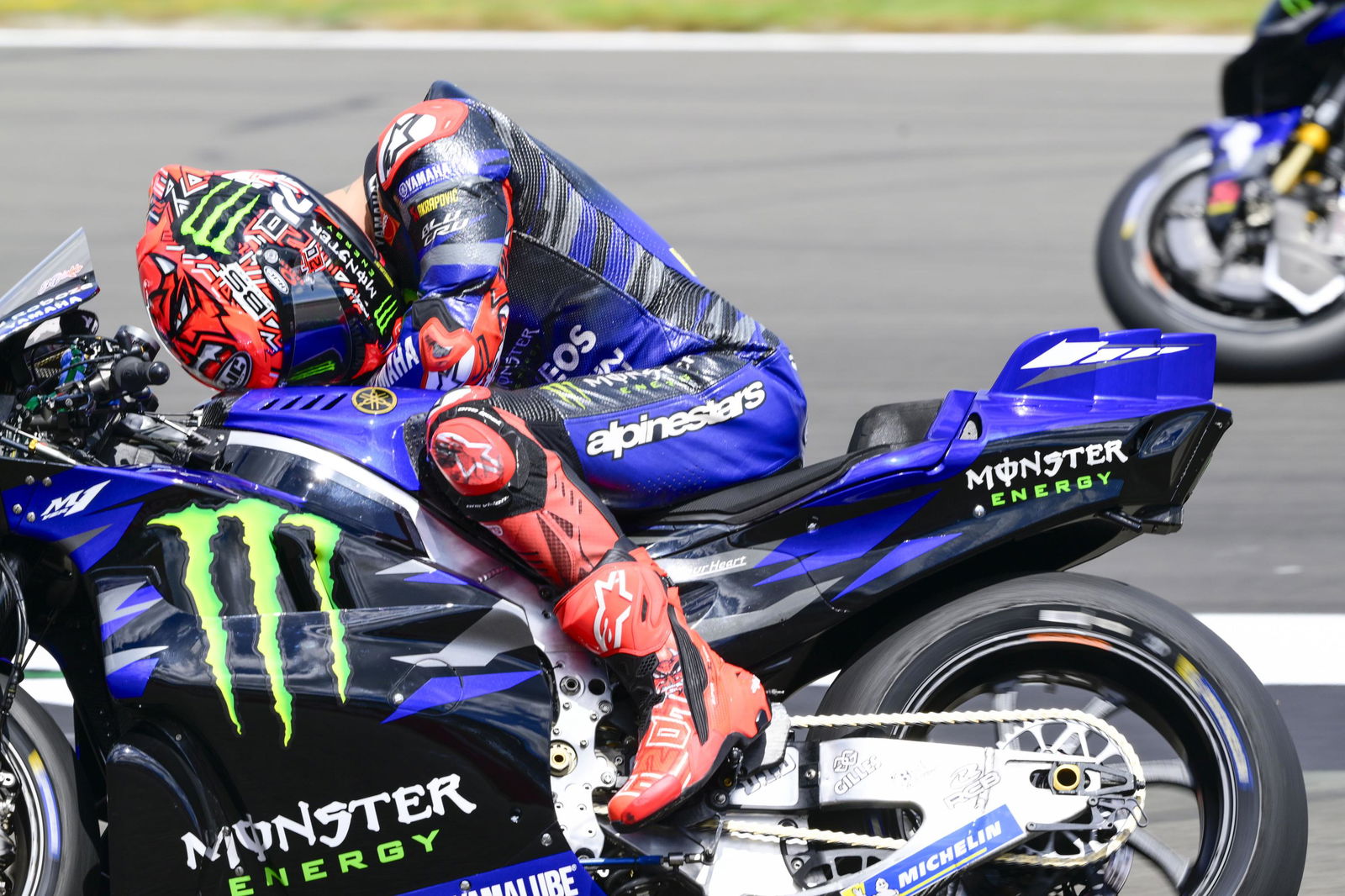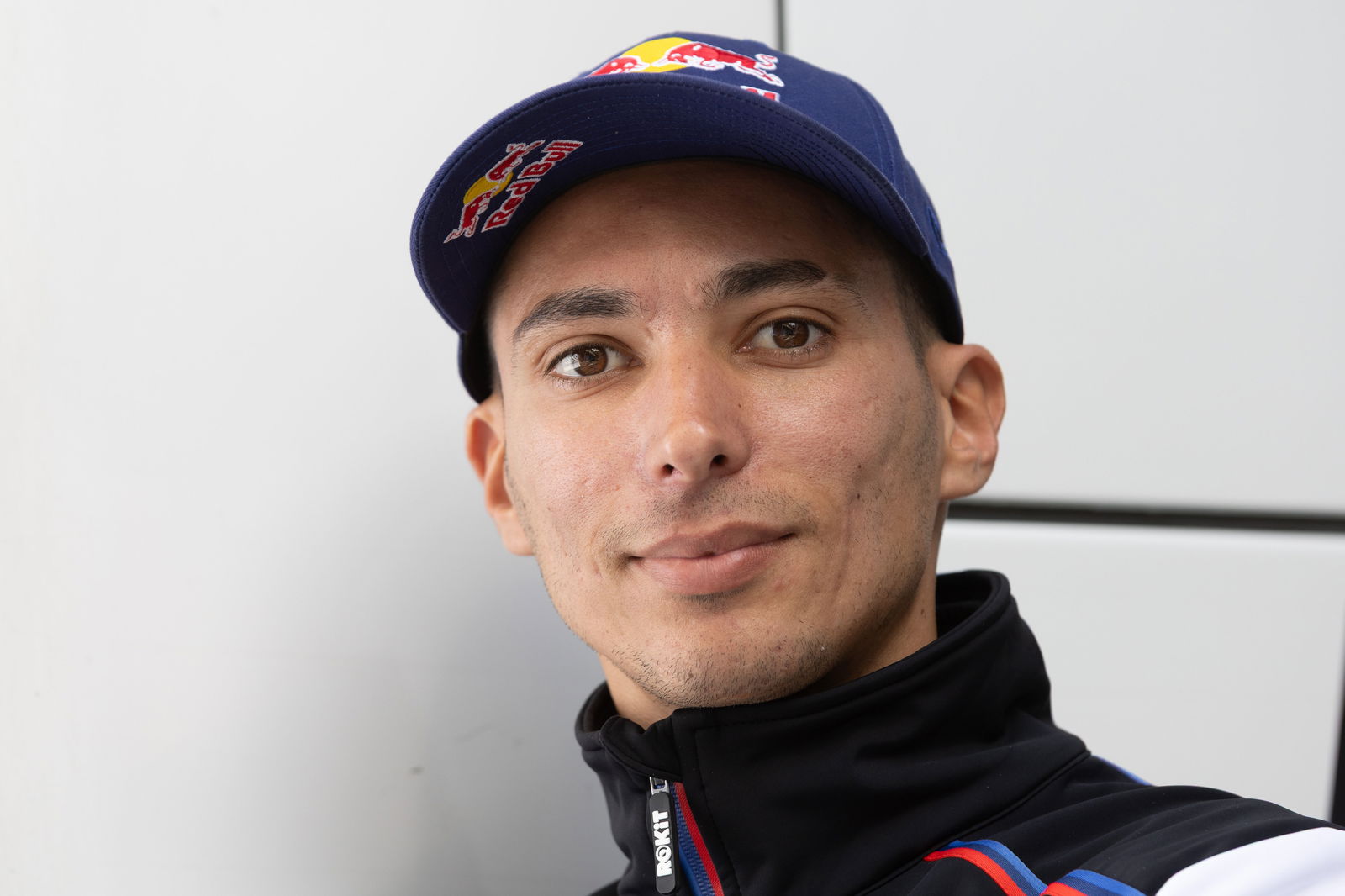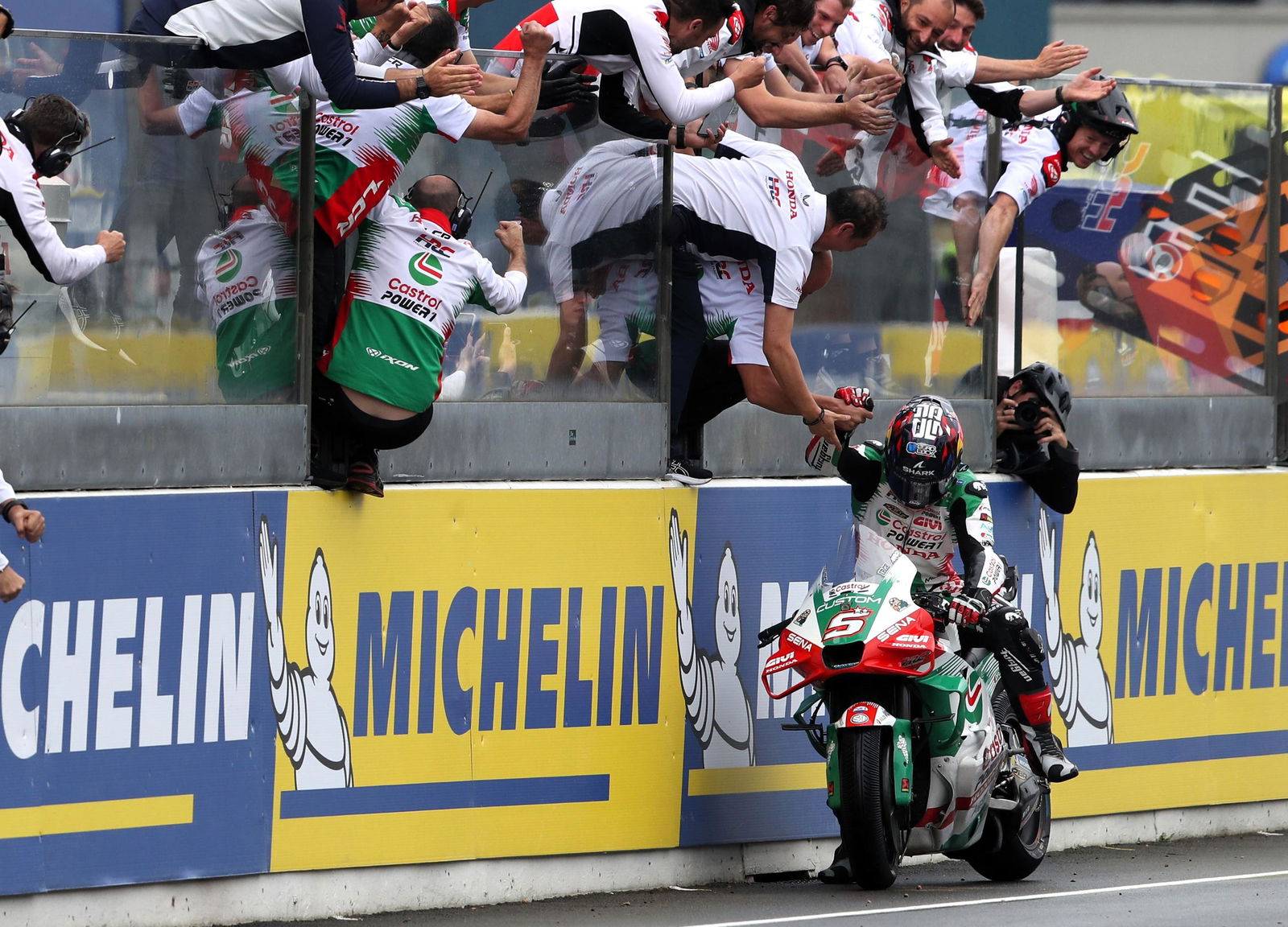MotoGP holeshot device ban at some tracks? “We need to vote”
British MotoGP reignites MotoGP ride-height and holeshot device debate.

Silverstone reignited the debate over the safety and necessity of MotoGP holeshot and ride-height devices following incidents involving Alex Marquez and Fabio Quartararo.
Quartararo, comfortably leading and on course for Yamaha’s first victory since 2022, saw his hopes dashed by a rear ride-height device malfunction with seven laps remaining. Team-mate Alex Rins said he suffered the same issue.
Meanwhile, both race starts saw some riders struggle to disengage their holeshot devices due to the lack of braking for the fast first corner.
Others were concerned about abnormally hard braking by riders ahead, as they sought to ensure their devices were released.
Alex Marquez blamed his Turn 1 crash from the lead of the original start on a combination of "the devices and being too optimistic".
MotoGP has already agreed to ban all ride-height devices, including the extra-low front and rear 'holeshot' (start) systems, as part of the new technical rules from 2027.
Alex Marquez was among those who believe an immediate ban on some holeshot use might be appropriate.
However, perhaps surprisingly given his accident, Marquez felt Silverstone didn't need to be on that list, citing low temperatures as a bigger factor in his front-end fall.
“We need to check and be realistic, especially the riders, where we need to ban them,” he said.
“I think it’s not necessary to ban them at all tracks, but maybe [some].
"At Le Mans, they need to be [banned], I agree 100%.
"But here not, the problem here is the temperature.”
Other riders did have issues disengaging their holeshot devices at the fast first corner throughout the weekend, including Enea Bastianini.
“I made the first lap with the front device activated and it was impossible to take out,” said the Tech3 KTM rider, who suffered the issue in both starts.
“I don't know if we have tried to go a bit lower, but it was impossible for me to remove it.”
Meanwhile, Aprilia race winner Marco Bezzecchi had fewer reservations.
“Honestly, I don't know if Alex crashed for the front device. It can happen to crash in the first corner after the start. Only Alex can know this.
“For me, the devices are cool. I started the MotoGP when the devices were already in there, so for me it’s okay.”
“We need to vote”
Runner-up Johann Zarco also supported the continued use of ride-height devices, although the Frenchman was open to a holeshot ban at certain tracks.
"I like the devices. As discussed after Le Mans, we need to vote or decide among the riders which tracks maybe we need it or not for the start," said Zarco, who had been developing a repeatable front ride-height system for Ducati before it was banned for 2023.
"Le Mans I think can be a good solution to not use [the hoelshot device]. Here, the first corner is quite fast, but we can brake enough to disengage. Or if you do not disengage 100%, you can disengage a bit later at turn three.
"Devices for the development have been very interesting. I think it’s still good to keep it because we learn so many things about what we can extract from the bike.”
Despite his heartbreak, Quartararo didn't call for a blanket ride-height ban.
"For me, even here it's not really dangerous," he said.
"You have to brake super super hard to unlock the front, to unlock the rear, and I think Alex's crash was at least a little about the front. But the medium tyre is also quite critical in this corner.
"I'm not the one who makes the regulations, and we are faster [with it], so we will not take it out if the others are still using it!"

Ducati’s Marc Marquez, who finished third, has been a vocal critic of ride-height devices in the past while at Honda, saying they reduce rider influence.
“Devices make the MotoGP bike easier to ride. Without devices, it’s much more difficult. Means safety,” he said.
“For some starts like Le Mans, maybe here, that first corner is a bit unsafe because riders are braking in a strange way.
“Last year also here somebody impacted another rider because we brake in a strange way [to release the device].
"But on another hand, today was super windy and with that rear [ride-height] device the bike was more stable.
"But what is true is that this makes the MotoGP easier.”
Aleix Espargaro, returning as a Honda wild-card at Silverstone, took a firmer stance, insisting ride-height devices should be banned entirely now that all factories are using them.
“I said this from three years ago. The rear and the front ride-height device… You will never see this in a road bike. I don't understand why we had these devices.
“But you have to be fair, there was nothing in the rule book against it, and so somebody very intelligent and smart decided to add it on the bike. So it's not his fault.
“It’s really controversial. Because it's dangerous in some places and it's not fun also for the show. But they have been smart [to find an advantage]. So now we have to respect it. It's difficult really.”
Examples of technical rules for specific circuit characteristics include mandatory use of large 340mm or 355mm front brake discs at Motegi, Red Bull Ring and Buriram, plus an exemption to the aerodynamic rules allowing for the removal of side pods at Phillip Island, due to cross winds.


